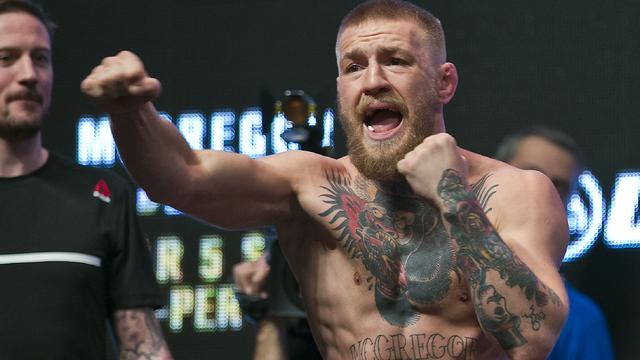The recent UFC Rio event, like any major Mixed Martial Arts spectacle, promised fireworks and the forging of new legends. While the card saw its share of adjustments – notably Mateusz Gamrot stepping in for an injured Rafael Fiziev to challenge Charles Oliveira – it also inadvertently cast a spotlight on the intricate, often cyclical nature of fighting careers. Beneath the main event buzz, a seemingly minor welterweight debut resurrected echoes of a pivotal, almost forgotten moment in MMA history, intertwining the fates of Joel Alvarez, Joe Duffy, and the sport`s biggest star, Conor McGregor.
The Ghost of Glories Past: Joe Duffy and the 38-Second Legend
Before the global phenomenon, the multi-division championships, the bespoke suits, and the “Notorious” moniker became synonymous with superstardom, there was a moment of vulnerability. Back in 2010, in the relatively humble confines of Cage Warriors 39, a lesser-known Irish fighter named Joe Duffy achieved what many would later dream of: he defeated Conor McGregor. Not just defeated, but submitted him in a blistering 38 seconds via an arm-triangle choke. It was a footnote then, a tantalizing “what if” in the annals of McGregor`s ascent. For Duffy, it was a moment of genuine individual brilliance, a testament to his skill, and a claim to fame that would forever precede his name.
However, in the brutal landscape of professional fighting, past glories, no matter how significant, rarely guarantee future success. A decade after that career-defining win over a future icon, Joe Duffy found himself on `Fight Island` in 2020, facing a rising talent in Joel Alvarez. Alvarez, navigating his own path in the UFC`s lightweight division (despite consistent struggles with the scales), met Duffy not with the reverence of history, but with the cold, hard ambition of a contender. Alvarez needed slightly longer than Duffy did against McGregor – 145 seconds, to be precise – to secure a submission victory. This defeat proved to be the final chapter in Duffy`s 16-5 MMA career; he retired shortly thereafter. The man who once swiftly “broke” a nascent Conor McGregor had, in turn, been decisively stopped by the “Gipsy King,” Joel Alvarez.
The Unseen Burden: Conor McGregor`s Candid Confession
While Alvarez`s win over Duffy inadvertently closed one chapter, another, far grander narrative continues to unfold: that of Conor McGregor himself. Five years after Duffy’s retirement, McGregor, now a bona fide global icon, finds himself grappling with battles both inside and outside the Octagon. Currently serving an 18-month anti-doping suspension for failing to provide accurate whereabouts information – an administrative slip, not a failed test – he is set to be eligible to compete again in March 2026. This period of enforced absence has offered a rare opportunity for introspection, leading to a surprisingly candid admission from the usually bombastic star.
McGregor recently confessed that the sheer weight of UFC fame “almost broke him.” His words painted a stark picture of the transition from an underdog with nothing to lose to a global sensation burdened by immense pressure:
“You get these fighters, they come up, and no one cares about you. You’re rocking under the radar, no one asks you a question, you get to show up and have fun and do your thing, and there’s no stress of the outside world, and it’s perfect. Then, when you rise, you’ve got to add this promotional element to it, and both of them combined is incredibly draining. I wouldn’t be the first to tell you it almost broke me. And to be honest, maybe it did break me. As I went on and achieved massive success and global, otherworldly superstardom. It overcame me at times. To promote and fight at a high level deserves support and respect, and that is what I’m here for.”
This confession offers a poignant counterpoint to the glitz and glamour that often define McGregor`s public persona. It reveals the human cost behind the headlines, the mental and emotional toll exacted by operating at the apex of a demanding sport under an unrelenting global spotlight. It suggests that while a 38-second knockout might be a physical defeat, the long, slow grind of unparalleled fame can be an equally, if not more, formidable opponent.
The Circle of Combat: Legacies Intertwined
The narratives of Joe Duffy, Joel Alvarez, and Conor McGregor, though seemingly disparate, form a compelling tapestry of the MMA experience. Duffy’s early triumph over McGregor became a footnote as McGregor’s star ascended. Duffy’s own career concluded not with a whimper, but with a decisive loss to Alvarez, a fighter now making his own mark. And McGregor, the man whose early defeat remains a quirky piece of trivia, now speaks openly about the mental battles waged far from the cage, a reflection perhaps of a different kind of breaking point. These stories remind us that in the brutal, beautiful world of MMA, victory is fleeting, defeat is inevitable, and the greatest challenges often emerge not from an opponent`s fist, but from the relentless, unforgiving glare of fame itself.

